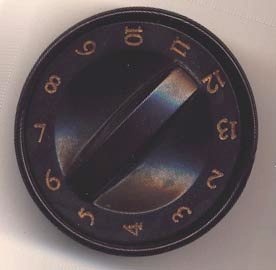
Ok, I kind of have a vested interest in this recent ruling regarding the FCC’s fining of Viacom for the wardrobe malfunction during the 2004 Super Bowl half time show (being in the broadcasting industry, as it were.) The court decided that the FCC had not warned broadcasters of a change in policy regarding “fleeting” instances, and suddenly fining them for such an istance – when the precedent from the commission was not to do so – was wrong.
Now I wrote about this after it first happened (click here to read it) and I still contend that the program that this show was part of is something that children shouldn’t be watching. (American) football is a violent sport, and is not something that children should be exposed to. Whereas a breast is something that children should have been intamately aware of, being the number one source for sustinance for many children in their formative years.
But I should also point out something semantically – the FCC’s own rules on indecency:
Material is indecent if, in context, it depicts or describes sexual or excretory organs or activities in terms patently offensive as measured by contemporary community standards for the broadcast medium. In each case, the FCC must determine whether the material describes or depicts sexual or excretory organs or activities and, if so, whether the material is “patently offensive.”

First of all, what was seen was a breast – and not much more than is seen in some bathing suits (the nipple being cleverly concealed behind jewelry.) You can argue that in the context of the performance that a breast would be considered a sexual organ, but if an actor licks another’s face during a love scene does the face become a sexual organ? The breast by design is a method of feeding, it has a side effect of providing pleasure to whom it is attached (in both sexes, and to varying degrees.) It’s only due to it’s “hidden mystery” of puritanical Victorianism that the sight of it (pardon the pun) titilates. The skin is the human body’s largest organ, and it too can provide the same degree of pleasure that a breast can in a sexual situation. So, by the FCC’s rules above, the skin – in certain context – can be construed as a sexual organ. So we’re going to have to watch scenes of passion where everyone is wearing a burka (pictured left) – but that’s not going to happen.
Similarly, I have to point out that the buttocks (but, arse, (US) fanny, derriere, ass, bum, &c…) is also not an excatory in nature, and should not run afoul of the FCC – but for some reason it does. The organ that is technically banned is the anus. The buttock, much like the breasts, are two mounds of fat – in this case, designed as padding when you sit down and to conceal the anus (let’s see how many time I can write anus in this blog…) Also, in theory, a woman should be able to prance around in her birthday suit on the television – because (so long as she keeps her legs shut, and buttocks clenched) she would not be showing any sexual or excratory organs. Men will forever have to wear boxers…
Of course, the other issue is what is considered offensive by contemporary community standards. That, I think, is a useless statement. In a society of differing opinions, a true community standard can not be attained. For instance, I only get ofended at people who get offended. In the television series Dead Like Me, a character was said to belive the word “moist” was vaguely pornographic (Duncan Hines, beware…) The (thankfully) late Senator Jesse Helms wanted to dictate to the American public what art is, and what it isn’t – as he seemed to be offended by things like penises, he felt that taxpayer monies shouldn’t be used on art. So ther would be no way to reach a true standard, as some groups are going to be upset.

In the end, television (and radio) is something that you have control over. You choose to have it in your home/car/computer, and you choose what to watch. Live events, like the Super Bowl, have always attracted crazies who would streak – so you should use caution when choosing such programming. And if, as was the case in 2004, such things do occur that you disagree with – switch the danm thing off! Especially if you are a Nielsen home! The best way to let broadcasters know you’re dissatisfied is by not watching (or listening.) You have to ultimate control over television – the power and the channel buttons. As the (sadly) late George Carlin commented on a minster who had a problem with content on the radio:
Of course, I’m sure the Reverend isn’t that comfortable with anything that has two knobs on it.
